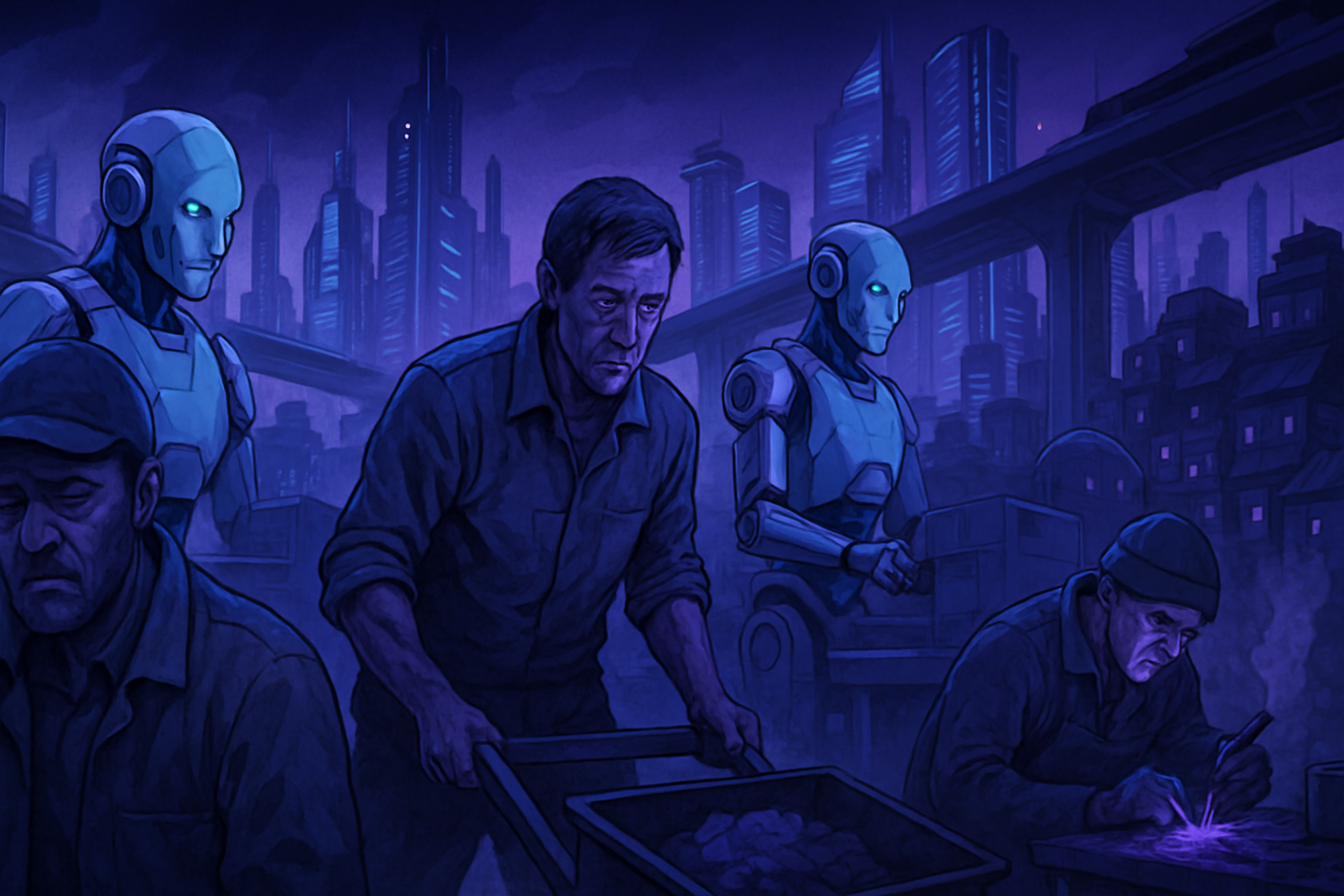Artificial intelligence (AI) is emerging as an uncontrollable force whose consequences extend far beyond innovation. It risks modeling a permanent underclass, exacerbating inequalities and transforming the professional landscape. The architects of this technological bubble, often idealized, remain fundamentally replaceable by advanced algorithms.
Traditional professions, once considered irreplaceable, now face a disruptive reality that few dare to challenge. The illusion of prosperity generated by AI masks pressing social issues. Critical voices are rising to question the true affinities between innovation and humanity, thereby unveiling the paradoxes of a greedy digital era.
The impact of artificial intelligence on employment
Recent analyses from OpenAI predicted a future where artificial intelligence will reach or surpass the human capacity for innovation by 2027. This technological advance could engender a “permanent underclass,” a category of workers lacking employment prospects. As the capabilities of AI systems develop, many human roles will be threatened, rendering several professions obsolete.
The raised concerns
Jobs that were once considered stable are now facing inevitable threats. Sectors such as journalism, the creative industry, and even education are cited by experts, highlighting the growing anxiety among professionals. Names like Leopold Aschenbrenner mention that many of these jobs could disappear, leaving workers in precarious situations.
The paradox of technological progress
A clear observation emerges: the evolutions throughout history, such as industrialization or electrification, have systematically displaced workers in their fights for professional survival. Access inequalities and markdown-economy hit the most vulnerable. Access to capital becomes crucial in the ability to adapt to change, thus favoring an elite at the expense of the popular classes.
Reactions and activism
Unions, once facing industrial revolutions, are now rising against the rise of AI. The movement of writers in the United States illustrates this resistance. During a strike in 2023, the writers negotiated rights allowing them to use AI without being replaced. This type of activism demonstrates that the dialogue surrounding AI is essential to preserve equitable levels of employment.
Revelations about the AI industry
A deep analysis reveals growing doubts about the economic viability of AI. Studies show that about 95% of business customers receive no return on their AI-related investments. Data collected by major institutions such as MIT and Carnegie Mellon University also show the limitations of current AI agents’ capabilities, often rendering them unable to perform simple tasks efficiently.
The ethical and economic implications
This evolution also raises fundamental ethical questions. Critical voices label the economic model based on AI as “piracy,” suggesting that companies exploiting skills without fair compensation align themselves with economic slavery. This analogy establishes a strong link between business ethics and social responsibility, challenging current norms.
Future perspectives
The uncertainties surrounding AI development represent fertile ground for significant social changes. Many view the ongoing dialogue as an opportunity to redefine the values of work. The challenge lies in the ability of societies to cope with technological enthusiasm while ensuring social justice and labor rights.
Frequently asked questions
What is meant by “permanent underclass” in the context of artificial intelligence?
The “permanent underclass” refers to a category of workers at risk of being sidelined from job opportunities due to increased automation and advances in AI, leaving part of the population without stable employment prospects.
How might artificial intelligence replace jobs?
Artificial intelligence can automate specific tasks, thus rendering certain positions obsolete, based on its ability to perform functions that previously required humans, such as writing, analysis, and other technical skills.
Which types of jobs are most threatened by AI?
Jobs related to repetitive tasks, such as cashiers, machine operators, and even some positions in writing or graphic design, are the most vulnerable to AI automation.
What role do unions play in the face of AI entering the job market?
Unions play a crucial role in negotiating protections for workers, promoting continuous training programs, and advocating for agreements that prevent the complete replacement of employees by AI technologies.
How does the current situation compare to past industrial revolutions?
Just as in previous industrial revolutions, the rise of AI also raises concerns about massive job losses. Lessons from the past show that training, professional reintegration, and adaptation to technological change are essential for navigating these transitions.
Why do some experts believe AI is not inevitably beneficial?
Many experts point to the economic challenges posed by AI technologies, including often negligible return on investment or lack of tangible benefits for companies adopting these technologies.
What is the opinion of investors regarding AI-related stocks?
A growing number of investors express concern about a possible bubble in the AI market, with predictions of sudden corrections if profitability does not keep pace with massive investments in the field.
How can education and training counteract the negative impacts of AI?
By focusing on continuous learning and developing technical skills, workers can prepare themselves to integrate into positions less likely to be automated, thereby mitigating the impact of changes brought about by AI.
What are the drawbacks of an AI business model based on the exploitation of content without compensation?
Such a model risks leading to lower quality content production and can harm creative sectors, thereby undermining diversity and the development of new talent, while perpetuating economic inequalities.






